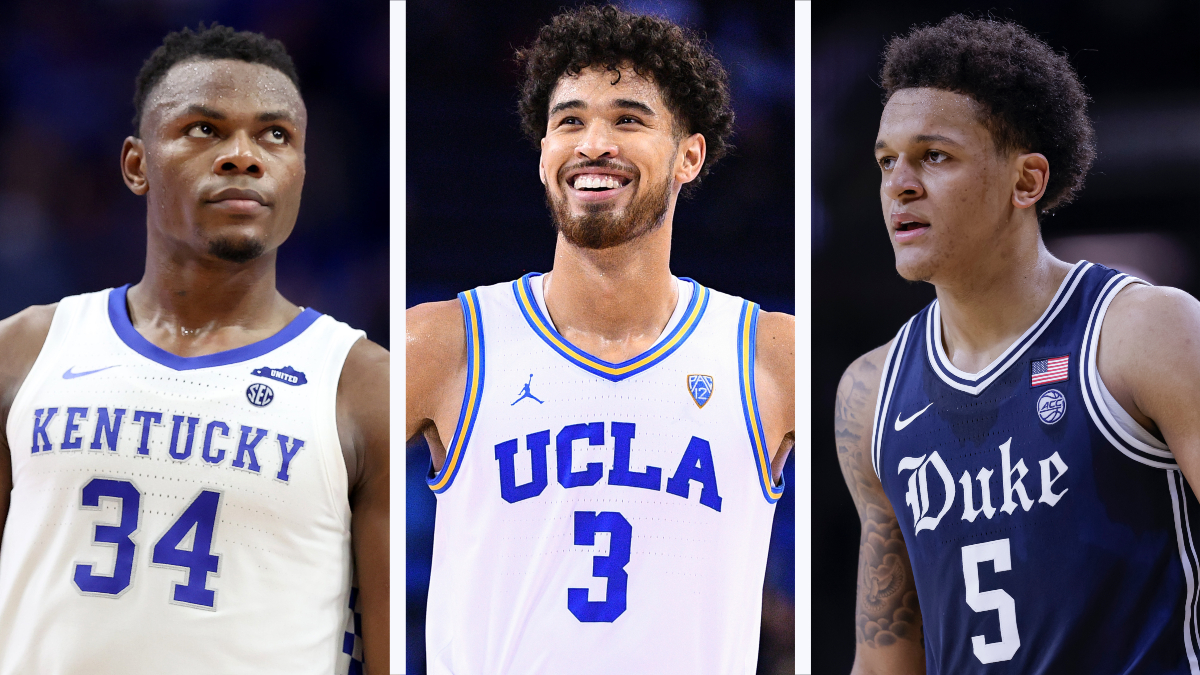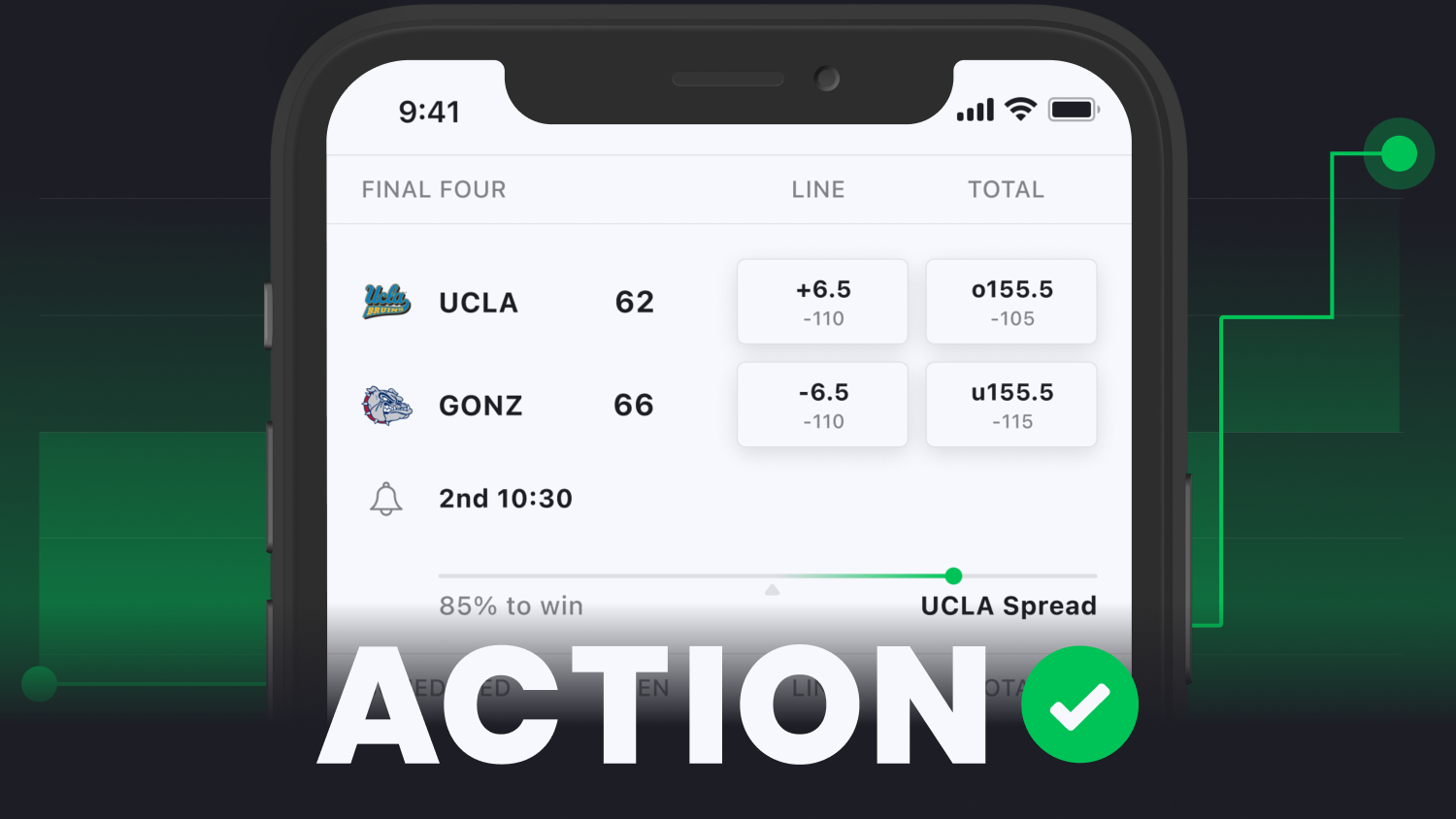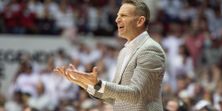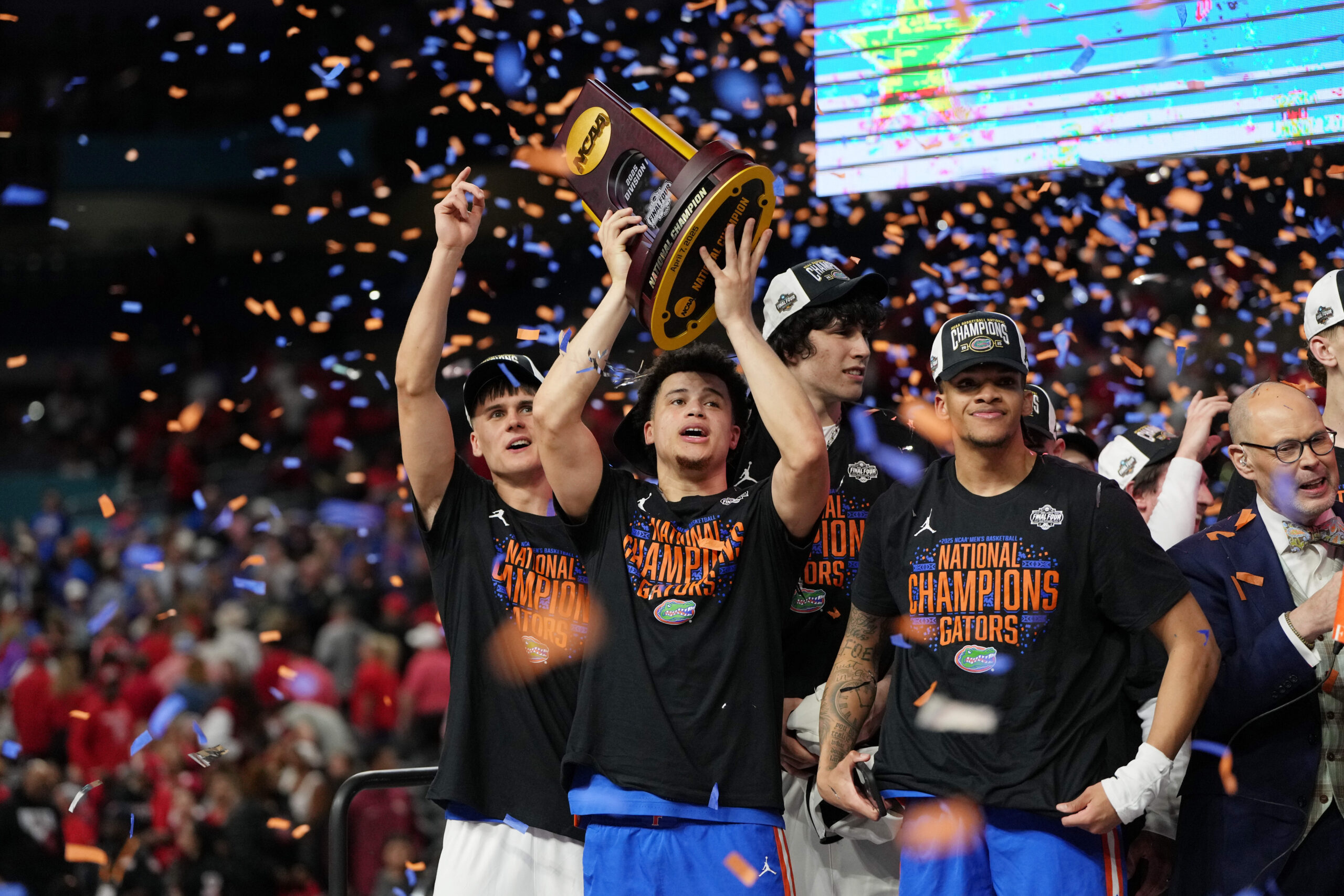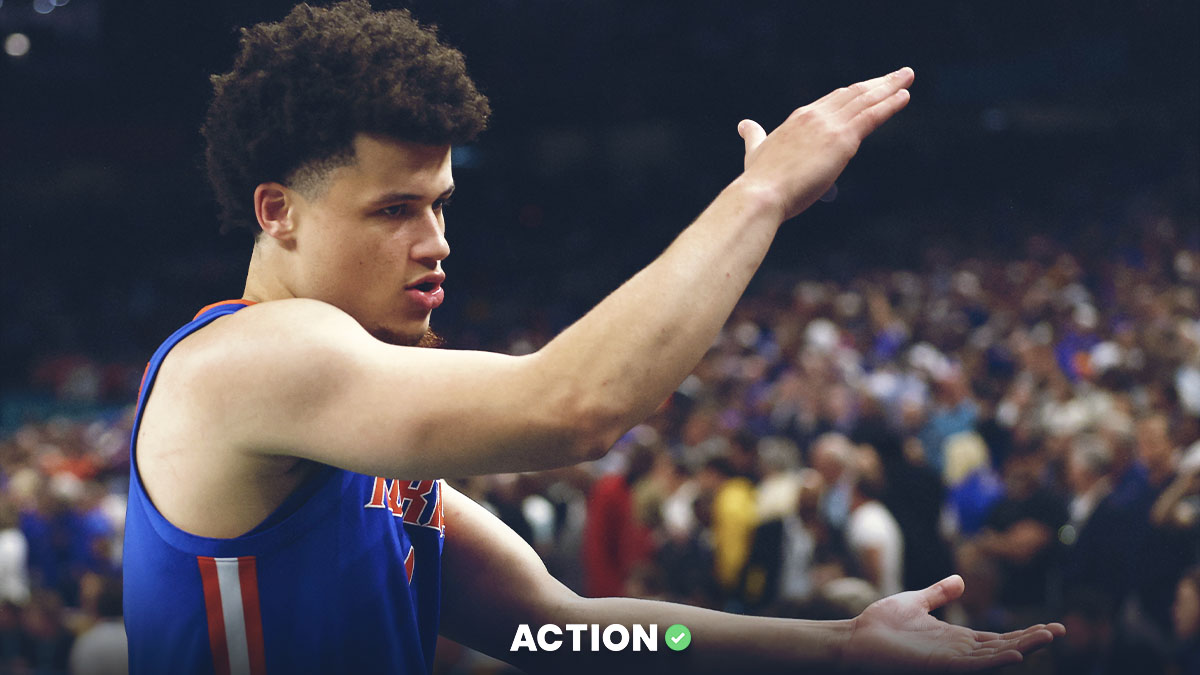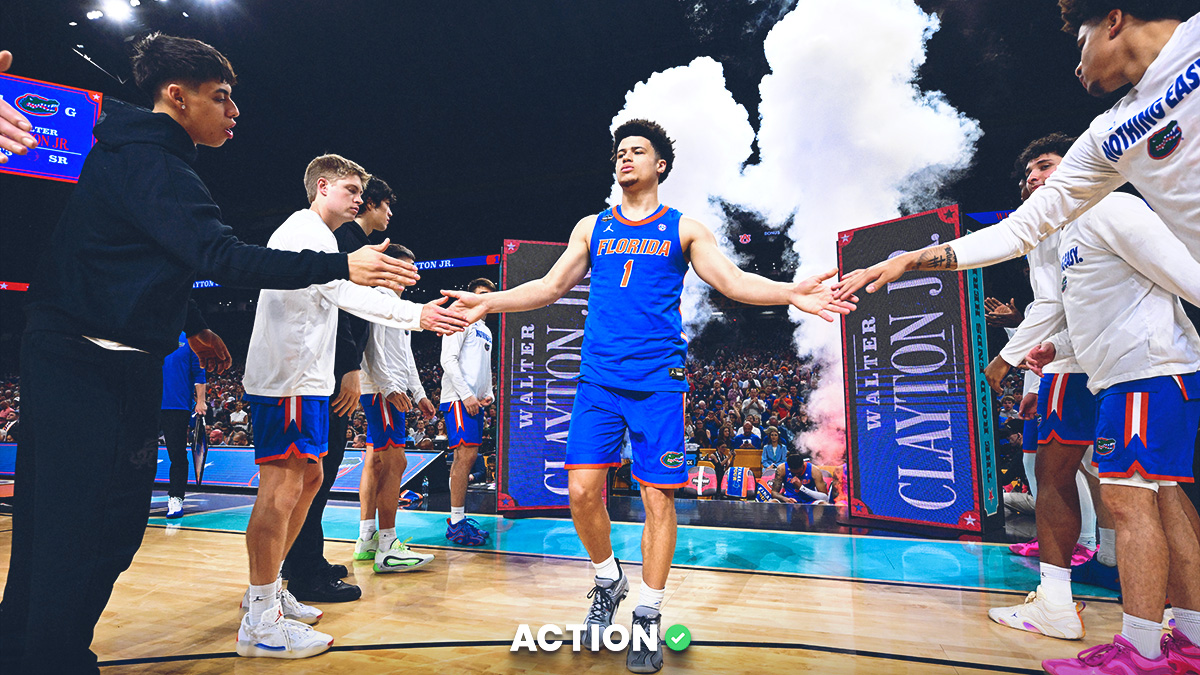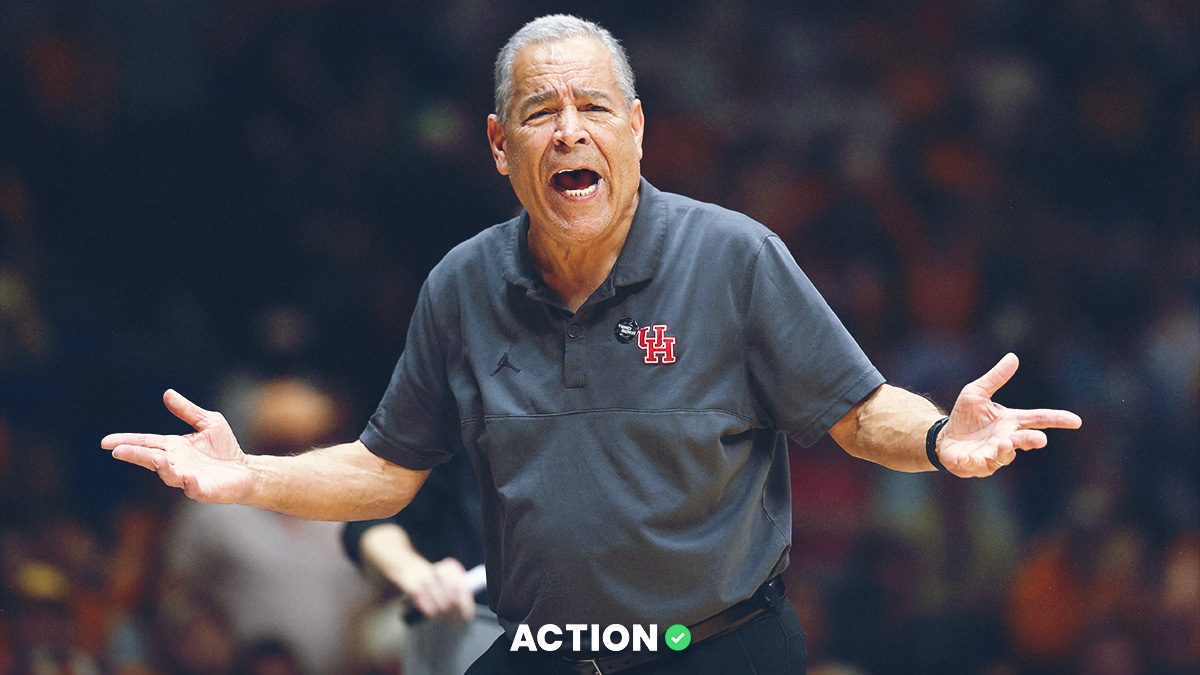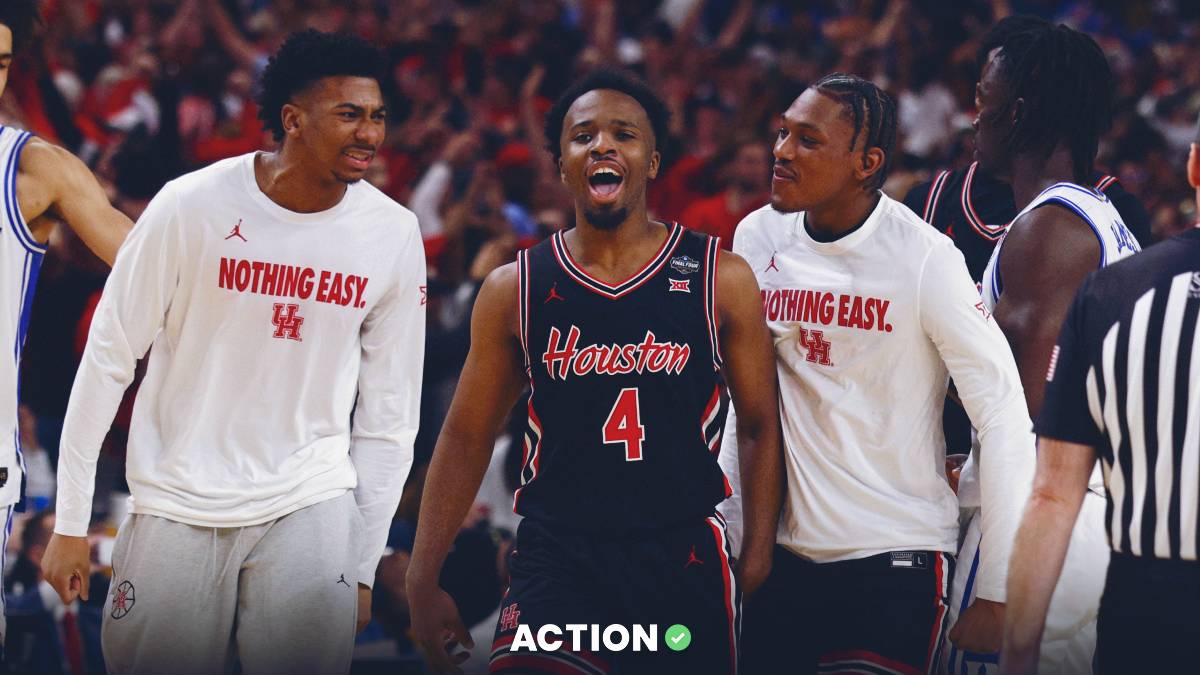With March quickly approaching, some bettors may be looking to add a college basketball national title future to their portfolio. If you're looking for potential candidates, here's one way to identify which teams potentially have what it takes to cut down the nets in April.
If you examine every national champion's statistical profile over the past 20 years prior to the tournament, a few things stick out — in particular, Adjusted Offensive Efficiency (AdjOE) and Adjusted Defensive Efficiency (AdjDE), per KenPom.
It's much more relevant to analyze teams' historical profiles based on their performance prior to the NCAA Tournament. Any national champion will obviously receive a significant bump in its metrics for winning six additional games — with a few likely against elite competition. That does not help us identify an archetypal profile or rule of thumb prior to the tournament.
Two Traits That National Champions Share in Common
As you can see in the chart below, every single national champion (except one) had a top-25 AdjOE rank prior to the start of the NCAA Tournament. Additionally, all but one also had a combined AdjOE and AdjDE ranking of less than 50.
What does this tell us? National champion college basketball teams need one of the 25 best offenses in the country to get through the bracket. Furthermore, teams with a relatively weak offense or defense will likely will fall short, regardless of how elite the team may be on the other end of the court.
UConn (2014) is the only team to win a national championship despite ranking outside the top 25 in AdjOE heading into the NCAA Tournament. Those Huskies are also the sole champion since 2002 to report a composite AdjOE and AdjDE rank exceeding 50.
It helps when you have Shabazz Napier going off for six games in the dance — although you may also recall that squad entered the tourney as a No. 7 seed and needed overtime to escape its first-round matchup with St. Joseph's.
Last year, Baylor barely made the cut with an elite offense but an AdjDE rank of just 44. However, those Bears had a battle with COVID-19 during the regular season that significantly hampered their season-long numbers on that end of the floor.
That is something worth considering this season as well with COVID-19 still causing interruptions that may impact some teams much more than others.
Which Teams Fit the Mold This Year?
So, who fits the mold through Feb. 9 — a little over a month away from Selection Sunday?
Eleven teams boast statistical profiles that fulfill both of our criteria:
- An Adjusted Offensive Efficiency metric that ranks in the top 25 nationally.
- The sum of the team's offensive and defensive efficiency ranks does not exceed 50.
Remember — there's still over a month of basketball to be played. Moreover, some teams have dealt with COVID-19, and others may take longer than usual to really get rolling due to the inordinate amount of transfer movement this past offseason.
Three Notable Teams That Don't Make the Cut
Among the 14 teams that are priced at 40-1 or better to win the national championship, only three do not fulfill both of our statistical criteria.
Which three teams didn't make the cut? Purdue, Texas and Texas Tech.
Purdue has the top AdjOE in the land … but its defense ranks just outside the top-100. Meanwhile, Texas and Texas Tech boast elite defenses — but each team's offense ranks outside the top 25.
The latter two make sense to me. It's hard for me to picture either the Red Raiders or Longhorns winning six games in the NCAA Tournament with their current offenses.
Purdue: National Title Contender, or Pretender?
On the other hand, Purdue is a much more interesting case study. The Boilermakers do have some deficiencies on the defensive end, specifically on the perimeter, that could ultimately bite them in March.
However, there's no doubting how elite Purdue's offense is and how much of a matchup problem its bigs can create for opponents. The Boilermakers also have a future pro in Jaden Ivey who's capable of taking over games a la Shabazz Napier in 2014.
Could Purdue be the exception to the rule if its defense doesn't improve by a sizable margin during the next month?
Possibly … but history isn't on the Boilermakers' side.


